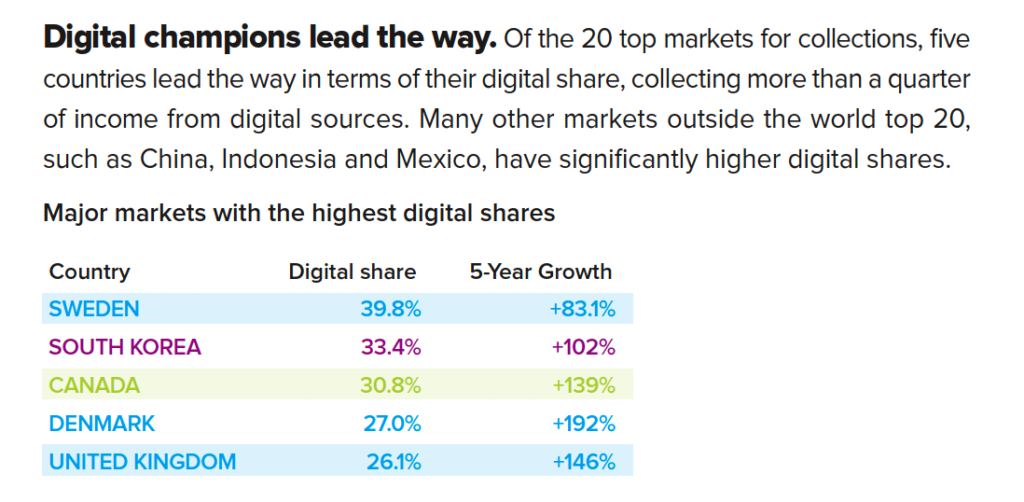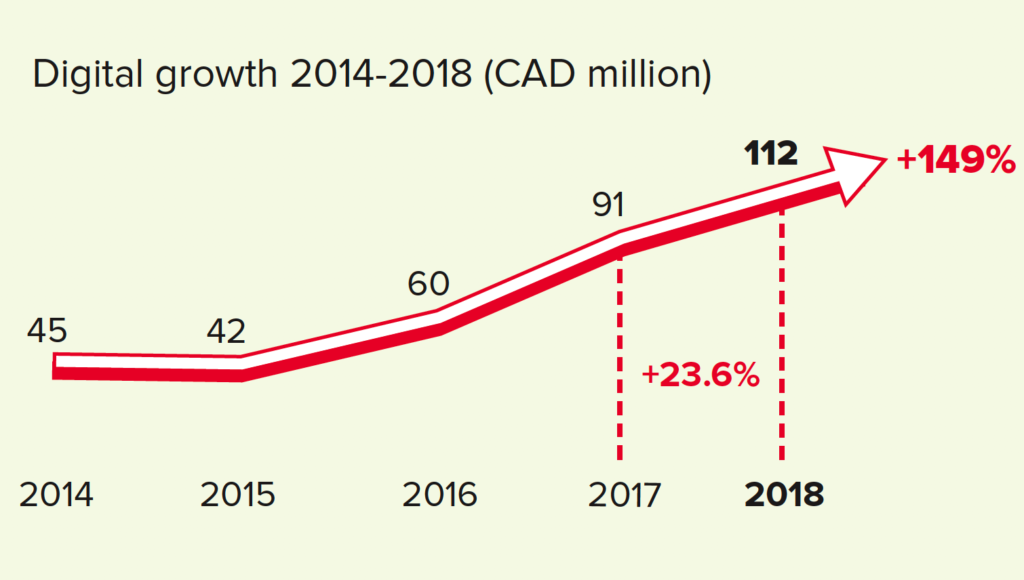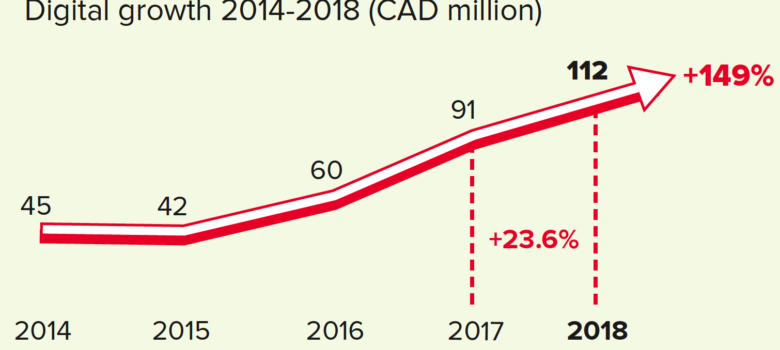The Canadian music industry has engaged in extensive lobbying efforts on copyright invariably pointing to concerns regarding revenues from digital music services. But the International Confederation of Societies of Authors and Composers (CISAC), which brings together 239 collective management organizations in 122 countries and five regions, recently released a global report that told a much different story, calling Canada a digital champion given the share of royalty revenues coming from digital services. CISAC represents over four million creators active in five major repertoires: audiovisual, dramatic, literature, music and visual arts. Its report identifies five digital champions within its top 20 global markets. Canada sits third in terms of both digital share and five year growth.

CISAC Global Collections Report 2019, https://www.cisac.org/Media/Studies-and-Reports/Publications/Royalty-Reports/2019-CISAC-Global-Collections-Report-EN, pg. 9
The growth of revenues from digital music services in Canada is a big story that is frequently forgotten in the rush to argue for restrictive new copyright rules. In fact, the data shows 149% growth in revenues since 2014 with digital music services now generating over $112 million per year in Canada.

CISAC Global Collections Report 2019, https://www.cisac.org/Media/Studies-and-Reports/Publications/Royalty-Reports/2019-CISAC-Global-Collections-Report-EN, pg. 45
In most industries, this growth would be viewed as a success story, reflecting positive consumer demand and a legal framework that supports the sector. Instead, the industry insists on claiming failure in the hope of sparking further copyright reforms. The Canadian copyright review, which concluded earlier this year, refused to adopt those recommendations, instead calling for a new termination right for creators that would place them in control over their copyrights during their lifetimes.








Pingback: News of the Week; November 13, 2019 – Communications Law at Allard Hall